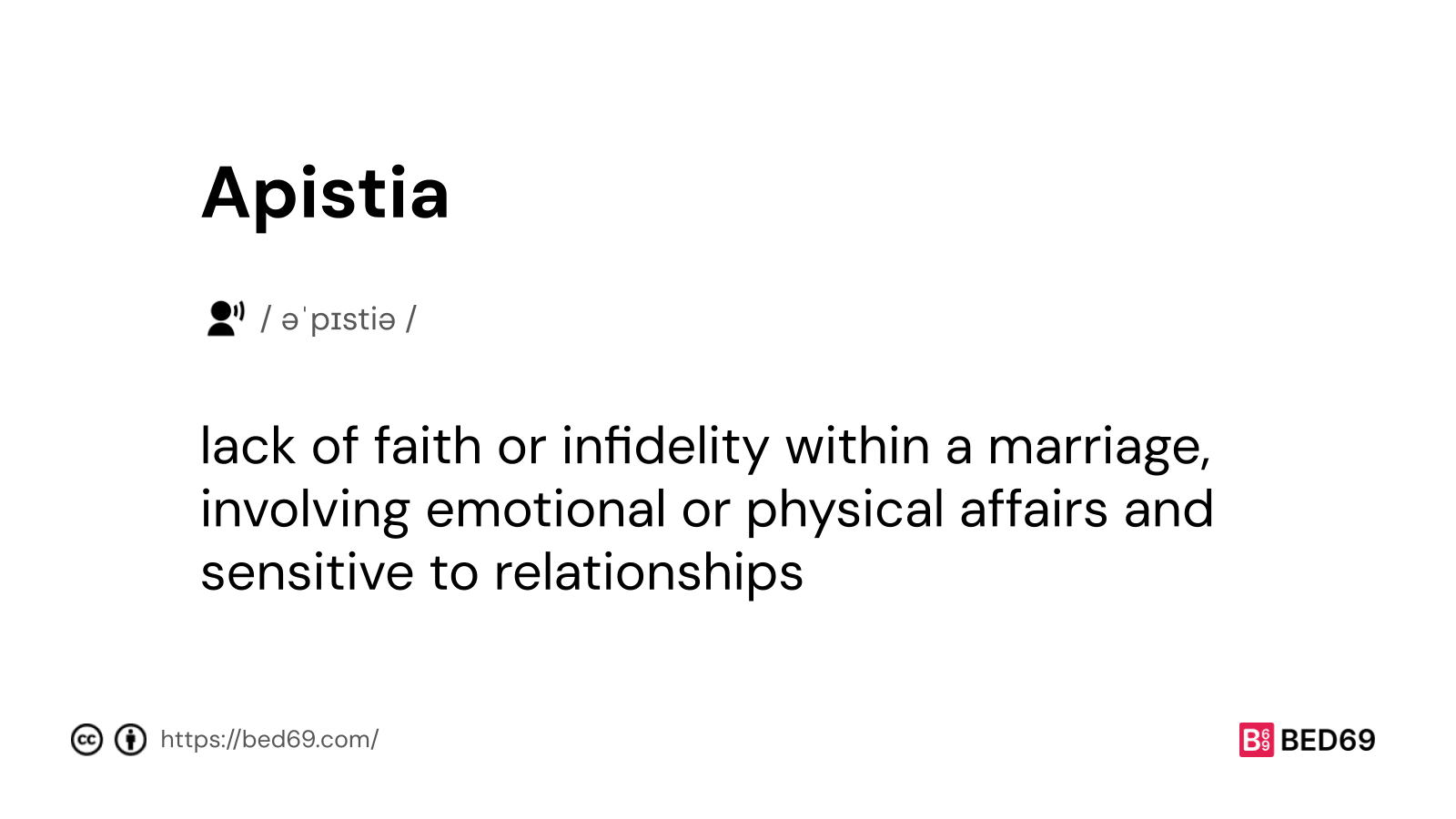What is Apistia?
Apistia, a Greek term for “lack of faith” or “infidelity,” now commonly refers to unfaithfulness within a marriage. This can include emotional or physical affairs, with varying definitions depending on each couple’s beliefs about cheating. Apistia is often viewed as a sensitive issue within relationships.
Apistia pronunciation: / əˈpɪstiə /

What signs indicate Apistia
Signs of apistia, or infidelity within a marriage, can manifest in various ways. It may involve secretive behavior, sudden changes in routine, or unexplained absences. Emotional distance, lack of intimacy, or sudden defensiveness when questioned about fidelity can also indicate apistia. Some individuals may show a sudden interest in personal appearance or become overly protective of their electronic devices, hinting at potential unfaithfulness.
Trust issues, gut feelings of unease, or discovering unfamiliar items can also be signs of apistia. These behaviors can create tension and suspicion within a relationship, leading to a breakdown of trust and communication.
How can couples address Apistia in their relationship
To address Apistia in a relationship, communication is key. Couples must openly discuss their definitions of faithfulness and infidelity. Establishing boundaries and mutual understanding can help prevent misunderstandings. Building trust through honest conversations and active listening is crucial. Transparency about feelings, concerns, and needs can strengthen the bond between partners.
Creating a safe space for expressing emotions without judgment is essential. Seeking professional help, such as couples therapy, can provide guidance and support in navigating issues related to Apistia. Working together to rebuild trust and reinforce commitment is vital. Remember, addressing Apistia requires effort from both partners and a willingness to confront challenges head-on. By fostering respect, empathy, and honesty, couples can work towards healing and strengthening their relationship.
Explore other interesting terms:
